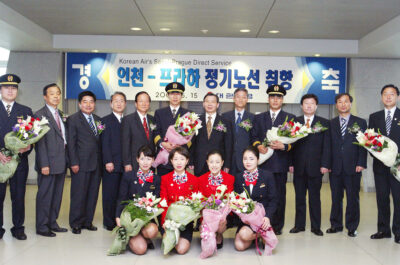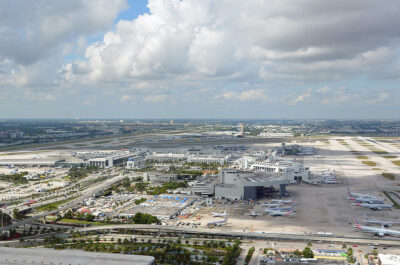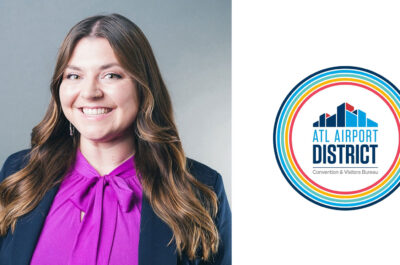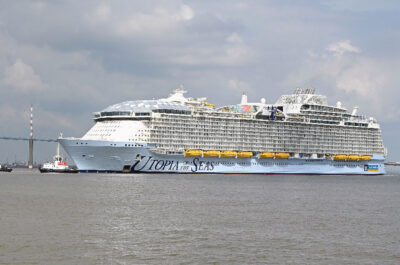Despite rising stock markets and hopes that the global recession will last only a year, an overwhelming majority of European business travel managers are reporting cutbacks for travel spending in 2009. A recent survey conducted by the Association of Corporate Travel Executives (ACTE), in conjunction with the Belgian Association of Corporate Travel Management (BATM)…
![]() Despite rising stock markets and hopes that the global recession will last only a year, an overwhelming majority of European business travel managers are reporting cutbacks for travel spending in 2009. A recent survey conducted by the Association of Corporate Travel Executives (ACTE), in conjunction with the Belgian Association of Corporate Travel Management (BATM), indicated that 93 percent of respondents foresee a reduction in their companies’ travel spend for 2009. Fifty-nine percent of survey participants plan to reduce travel spend through a combination of supplier negotiations and the application of demand management, while 39 percent will rely on demand management alone.
Despite rising stock markets and hopes that the global recession will last only a year, an overwhelming majority of European business travel managers are reporting cutbacks for travel spending in 2009. A recent survey conducted by the Association of Corporate Travel Executives (ACTE), in conjunction with the Belgian Association of Corporate Travel Management (BATM), indicated that 93 percent of respondents foresee a reduction in their companies’ travel spend for 2009. Fifty-nine percent of survey participants plan to reduce travel spend through a combination of supplier negotiations and the application of demand management, while 39 percent will rely on demand management alone.
“These percentages are higher than those compiled from an ACTE survey by a majority of U.S. travel managers just one month earlier, in February 2009,” said ACTE Executive Director Susan Gurley, “and reflect the growing ripple effect of the overall global economy. Regardless of recent market rebounds, these figures are a clear indication that companies are preparing for a long financial siege.”
Regardless of travel spend cutbacks, the influence of the business travel manager continues to be valued in Europe, as companies are relying heavily on travel management executives to find cost savings and enforce cost-cutting measures. Sixty-eight percent of survey respondents have reported that their companies have instituted a stronger emphasis on travel policy compliance. It would appear that policy compliance guarantees more accurate expense account reporting as only 35 percent have cited a mandate calling for increased vigilance with regard to employee travel fraud. (This is still a fairly higher number, however, indicating that companies are leaving no stone unturned in implementing cost-cutting measures.) Survey responses indicated that the heaviest areas of compliance review were air transportation at 85 percent, hotel at 59 percent, and self-booking tools and meetings at 46 percent, respectively.
One of the more significant aspects of this survey is that 65 percent of the travel manager respondents stated that they had made changes to their existing travel policy to reflect specific spend limitations, either representing changes among preferred vendors and suppliers inclined to discount, or defining the justification required for making a trip.
Challenging economic times have also brought about a significant change in the corporate regard of automated travel processes. Slightly more than half of the respondents, 51 percent, claimed their companies increased the level of travel management automation. Twenty-six percent claimed no increase, while 23 percent stated their processes were already fully automated. When asked if their companies had any plans to improve MIS/reporting capabilities to better monitor and control travel spending, 58 percent said “yes,” but that these plans predated the economic crisis. Thirty-two percent are making these improvements as a result of the crisis, while 10 percent said “no.”
Cost reduction measures were even extended to tighter controls in unused ticket management. Forty percent of survey respondents indicated they were placing a greater focus in this area, with 39 percent reporting unused tickets already had the highest levels of control. Twenty-two percent indicated this was not an issue. Petty cash (advances) management has also come under tighter controls for 58 percent of respondents, but this issue was largely resolved before the recent financial crisis. Forty-one percent of respondents are making changes in procurement strategies to include additional levels of travel spend (i.e. airport parking, meals and ground transportation), however, while 59 percent reported no changes in their procurement strategies.
Yet there were limits to the extent companies would go to get the lowest rates. When asked, “Would your company agree to prepay hotel reservations if the rates offered are lower than post-paid,” 61 percent said “no.” This reflects the last minute confirmation of trip itineraries that characterizes much of business travel and the need to keep options open with regard to changes and cancellations. Only 6 percent reported making changes in cash advance policies, while it was not an issue for over a third of respondents, 37 percent. The remaining 67 percent had made these changes prior to the financial crisis.
Perhaps one of the greatest areas of concern regards personnel changes in the travel department as a result of severe cutbacks in travel spending and a general reduction in business travel. Seventy-four percent of survey respondents indicated that no changes had been made to either the role or the number of staff in the travel department, as opposed to 26 percent who had experienced a reduction in staff. These numbers were statistically similar to the response to the question, “Has your company/will your company make reductions in travel back-office staffing and/or outsourced part of those activities,” with 71 percent reporting “no” and 29 percent responding “yes.”
“This is the third travel spend survey conducted by ACTE in a series tracking travel spend for 2009. The association first predicted a major economic crisis 18 months ago, and began changing its educational programs for a global recession accordingly,” said Gurley. “ACTE is constantly monitoring the economic climate to keep the travel industry poised to aid in its recovery.”
The association’s Global Education Conference, to be held in Washington, D.C. (5-7 April 2009) is specifically geared to conducting business travel in tight economic times, and offers eight individual breakout sessions with a focus on “finding the savings” that will provide attendees with proven practices for optimizing their companies’ travel spend.






















































































































































































